Burnt Sienna
Table of Contents
Date and Time:
2016.February.24, 10:00am [well, 11am]
Location: Chandler 260Subject: Burnt Sienna
Materials
--> Naomi talks me through the overall procedure... but lets me start with an intelligence test while she watches... (the observer is being observed?)
The game is called: Do you know what you will need and can you find these things alone in the lab?
She is impressed by my anal organization of instruments, organization, and labeling. She describes my problem strategy as: intuitively anticipating requirements and procedures... while avoiding the simple solution in favor of a much more complicated and less obvious one. Making and Knowing may turn out to become a 'find your inner self' therapy course for academics...
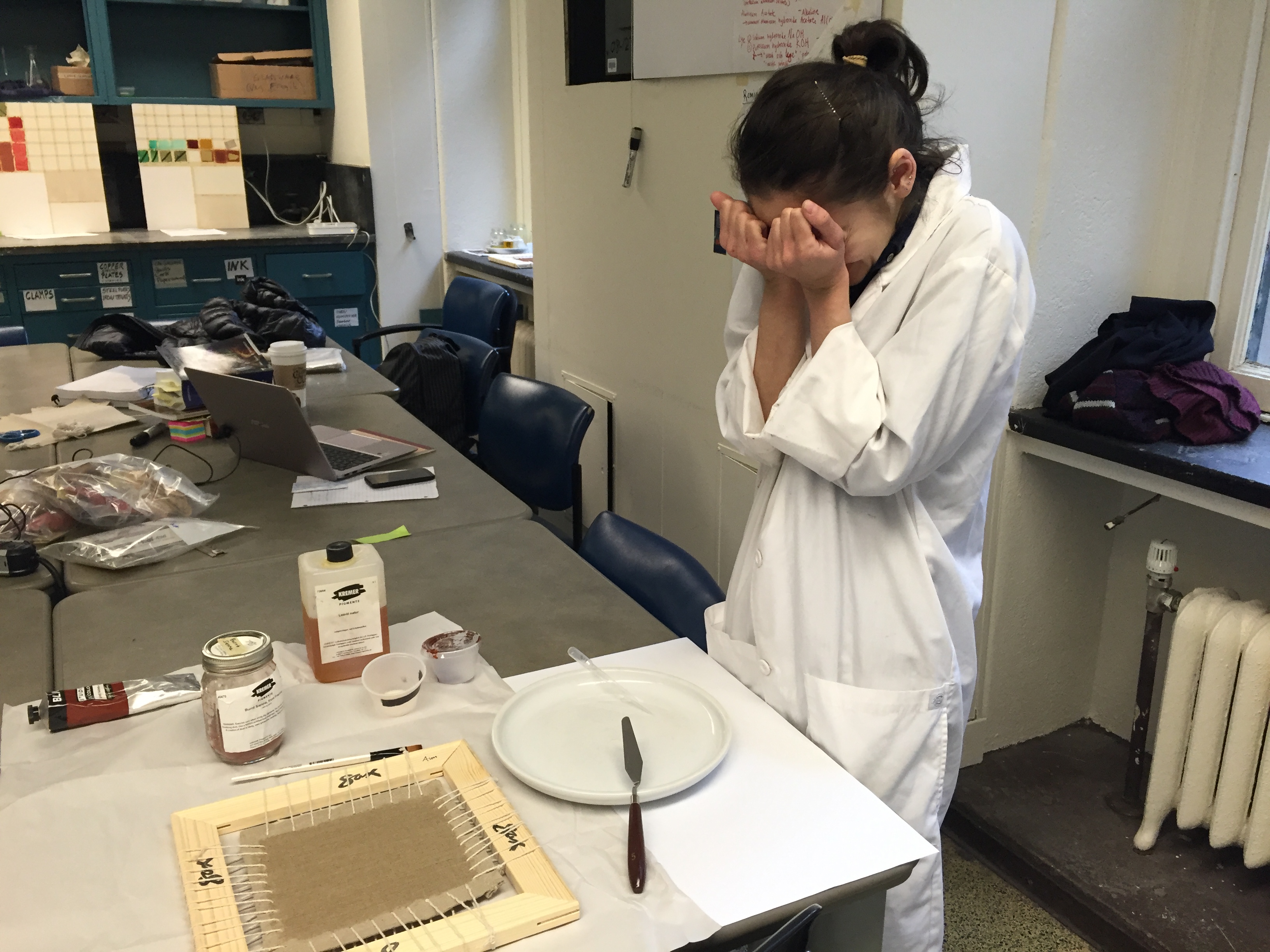
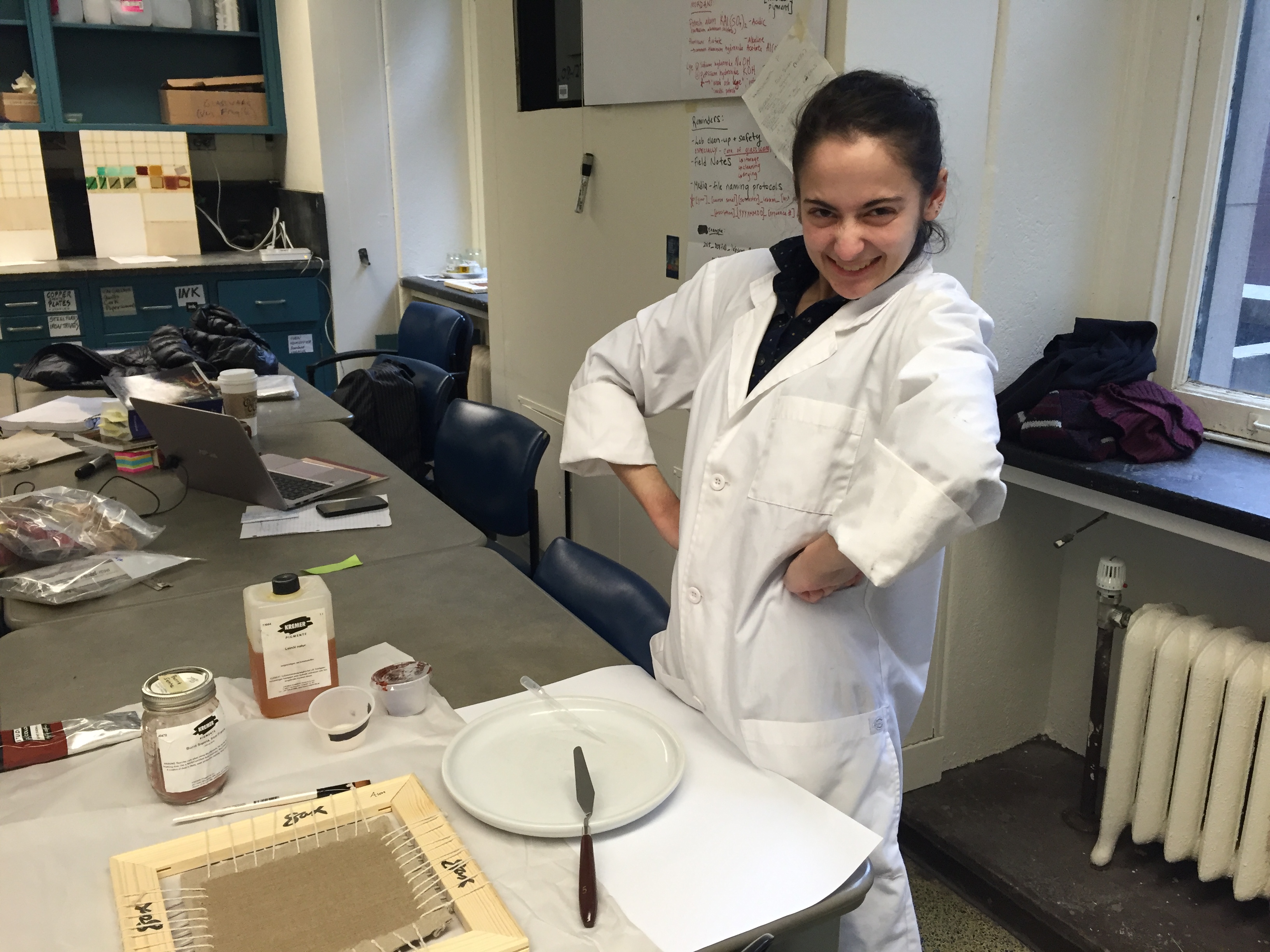
--> canvas with dried rabbit skin glue (you can see the canvas absorbed the glue -- it permeated the cloth and is also visible on the back); it's tight and makes a nice drum sound if you tap it (wish I was a musician to say what kind of tonality... medium? No idea.), surface feels rough-ish (I can feel the threading)
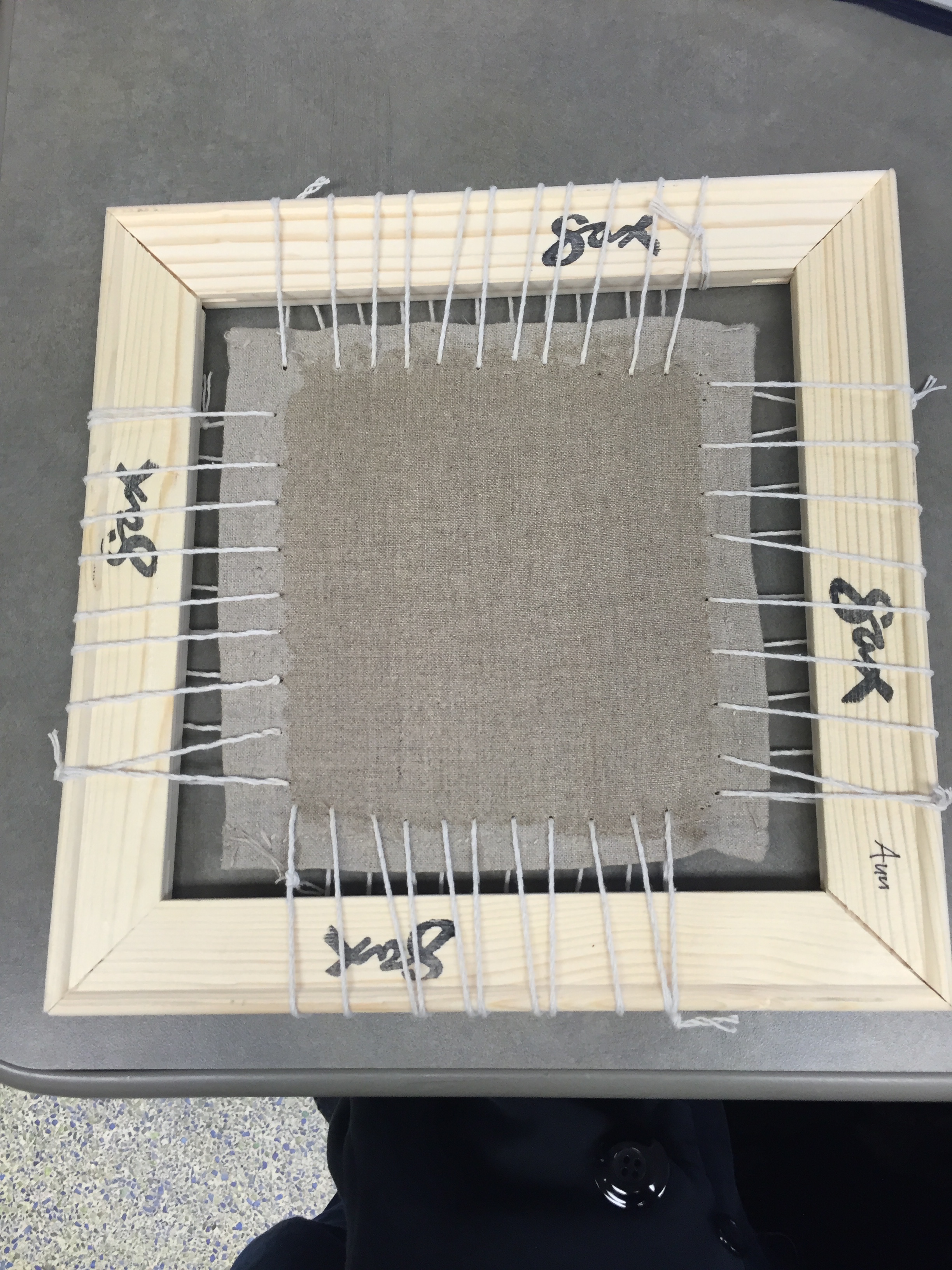
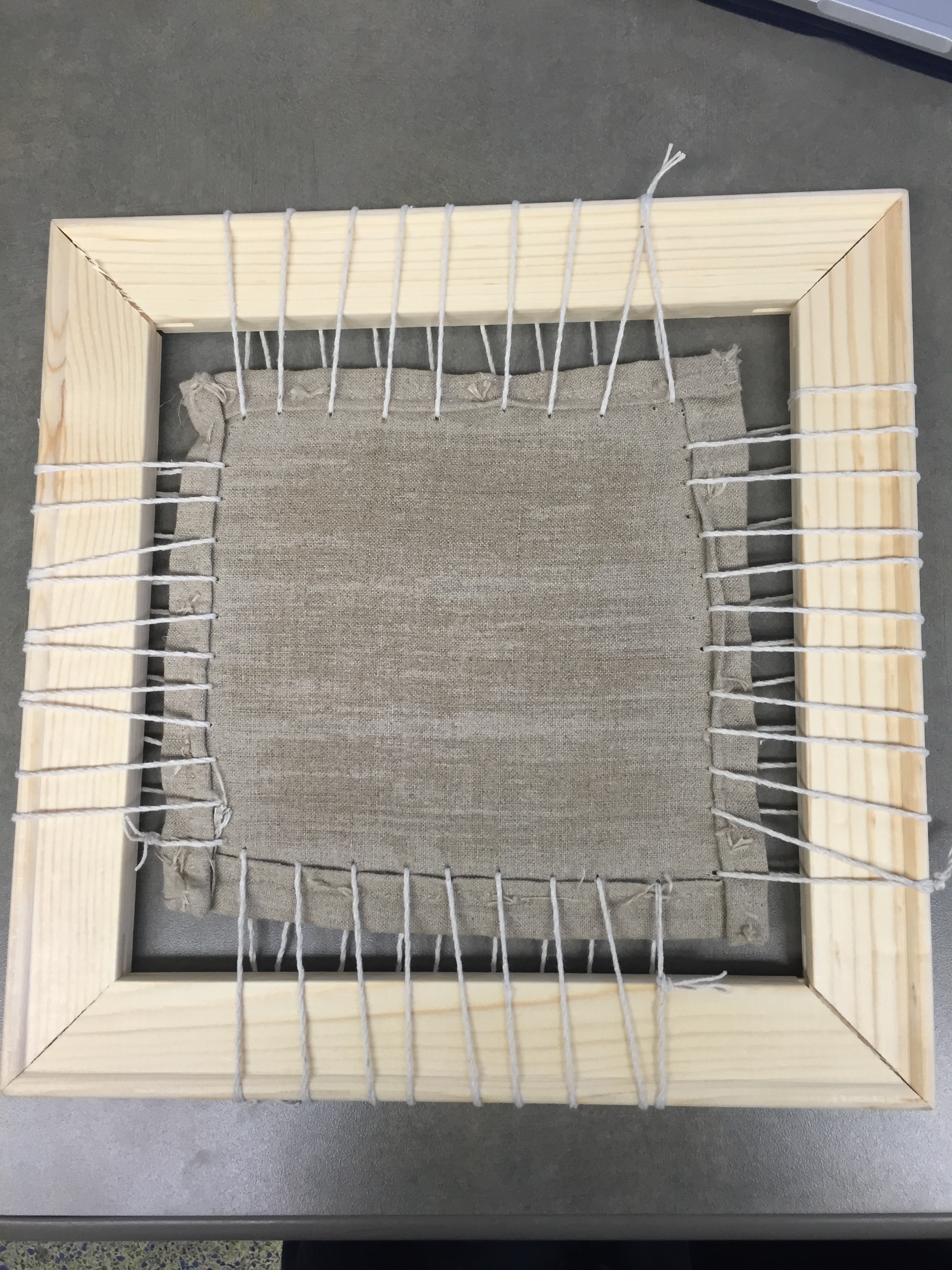
--> Pigments: (1) linseed oil and Sienna Burnt powder to mix together; (2) tube Sienna Red
--> Working Instruments: scraper (used two, one for each pigment), plus instrument for getting powder out of glass (what's that thingy name? non-native speaker with philosophical background here, it's not metaphysics, mind you! ), pipette for oil extraction, plate (for mixing pigment), brush (which I did not use in the end, but who knows)
--> Other utilities: paper surface to cover bench; tape and pen to label all things that can be labelled...
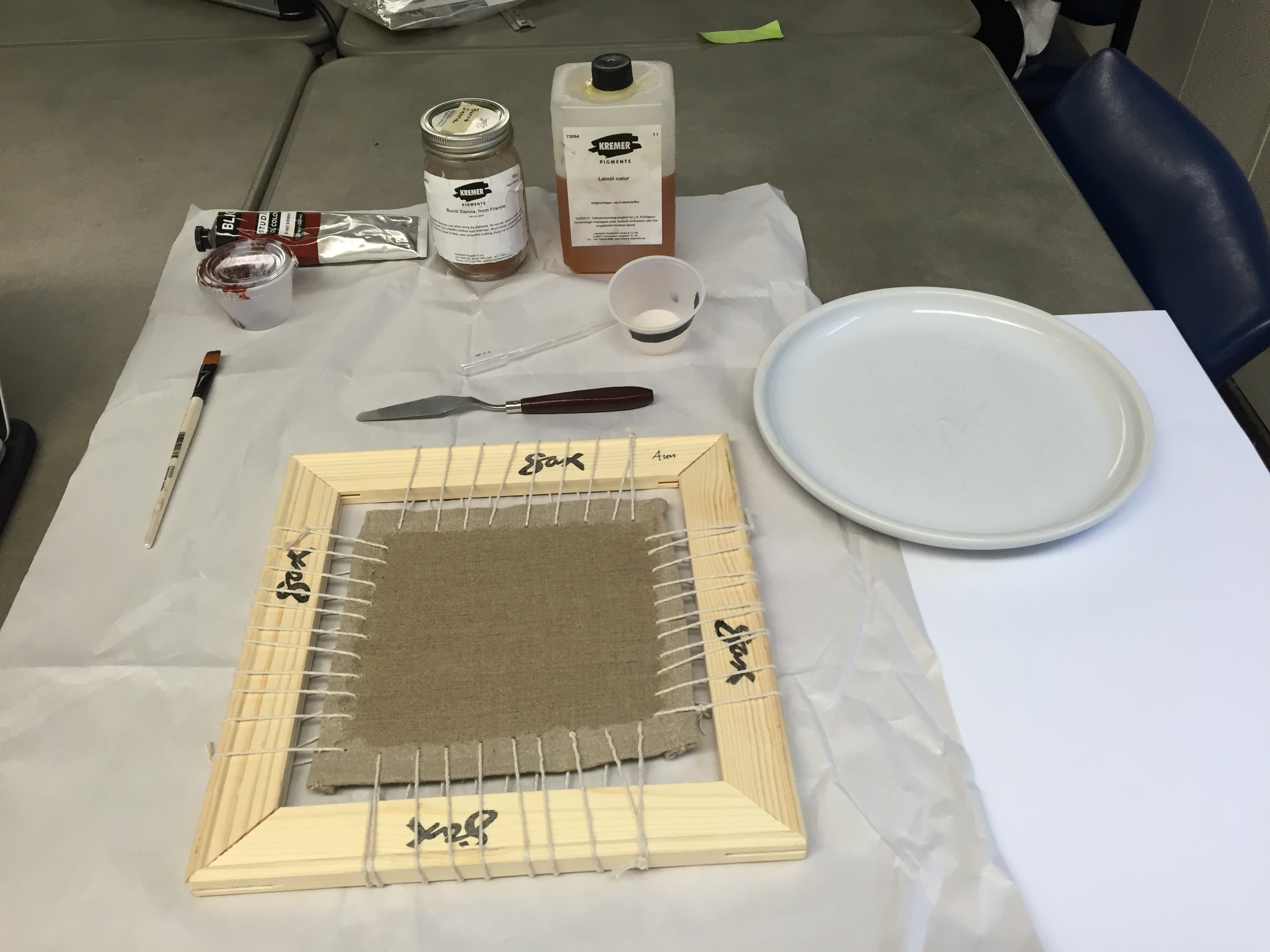
Method
This one worked out pretty smoothly (compared to the canvas framing) -- almost disappointing, failures are much more fun in hindsight. Meh.
--> Starting out with Sienna Burnt pigment preparation: I divide the mixing plate into a larger (powder and oil) and smaller (ready made tube) area; put scrapers for each on each side (know thy chaos)
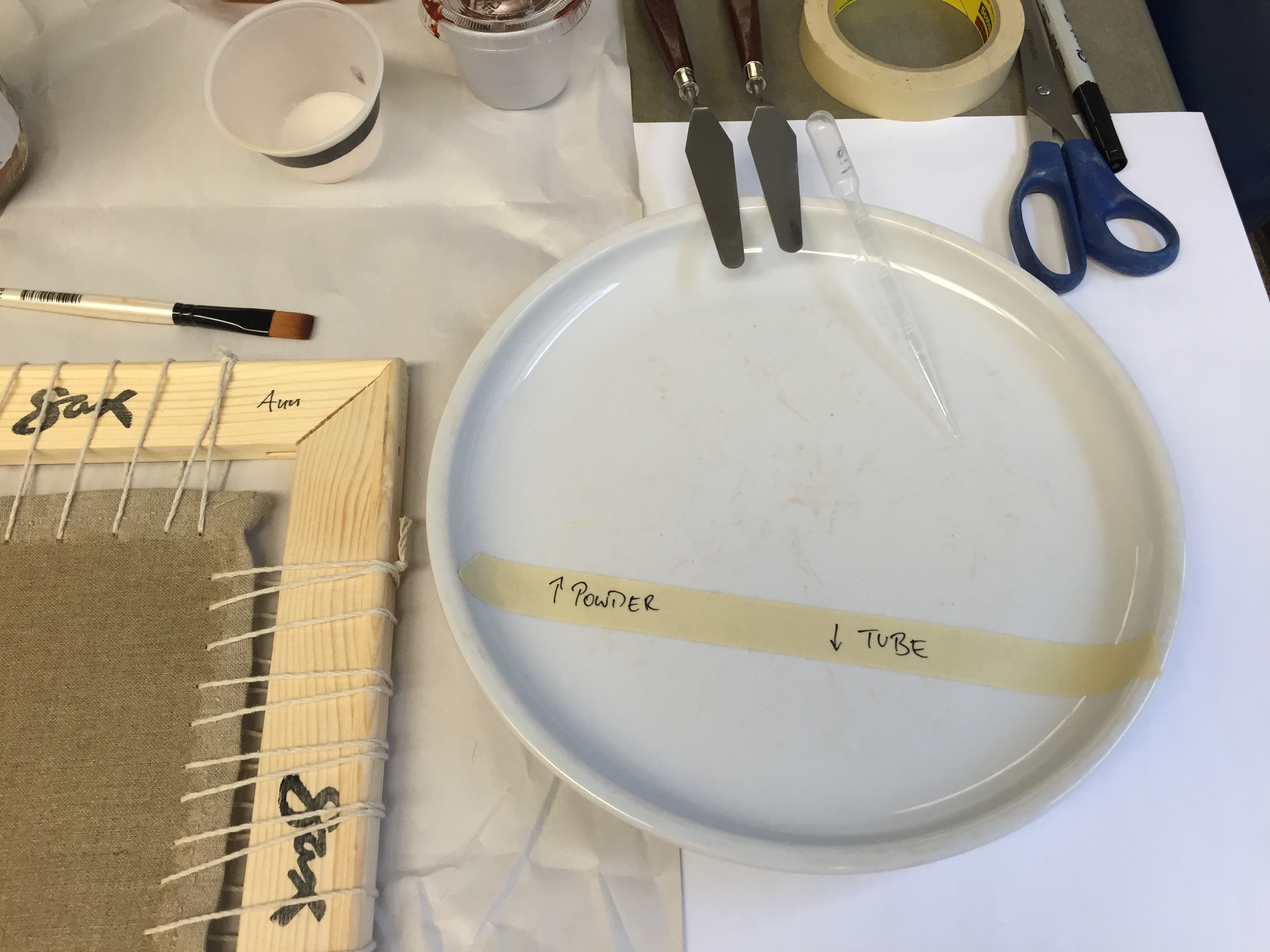
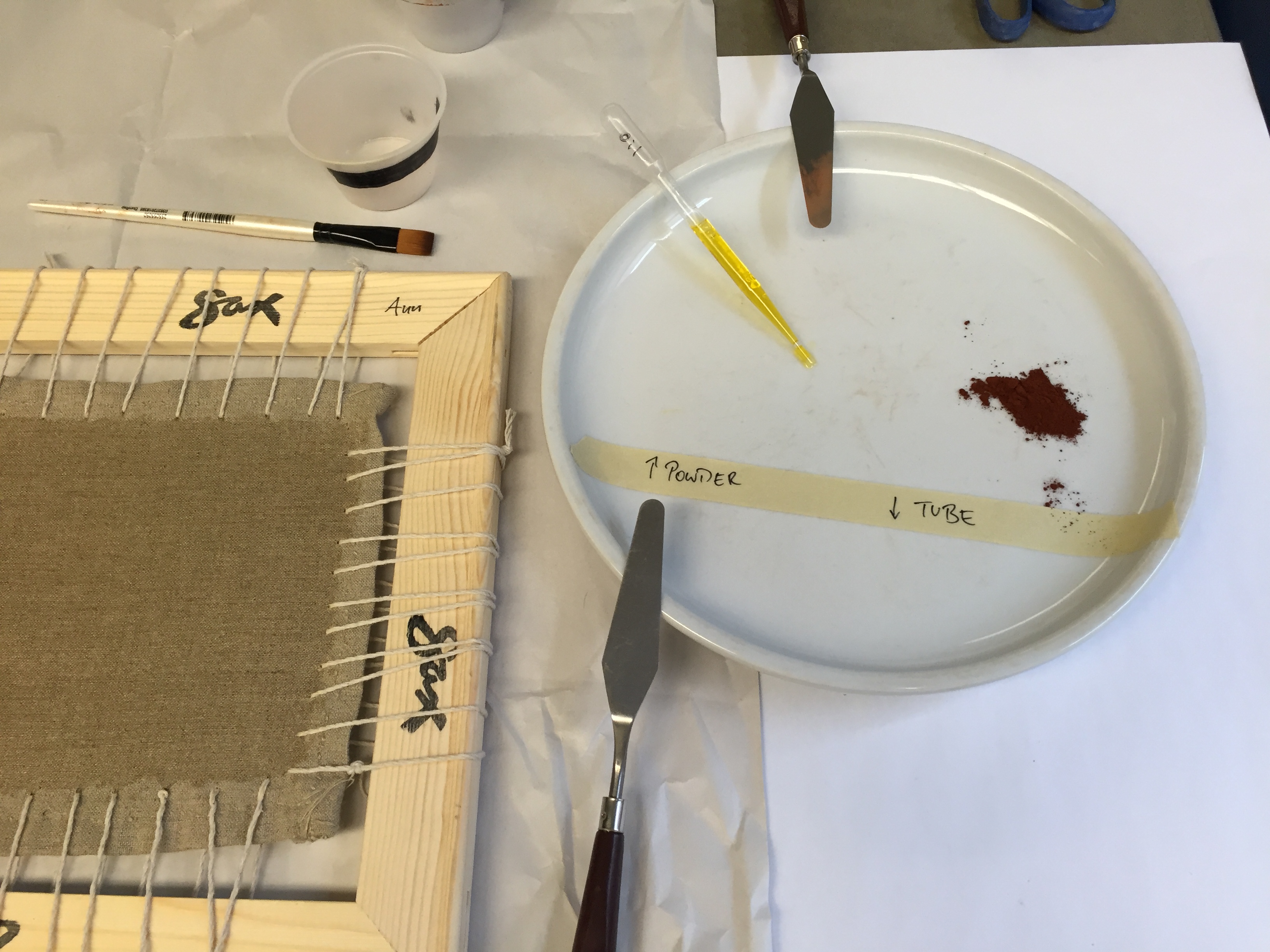
--> the two Sienna Reds are below (powder left, pre-prepared gel from tube). The tube turd smells of classic oil paint.
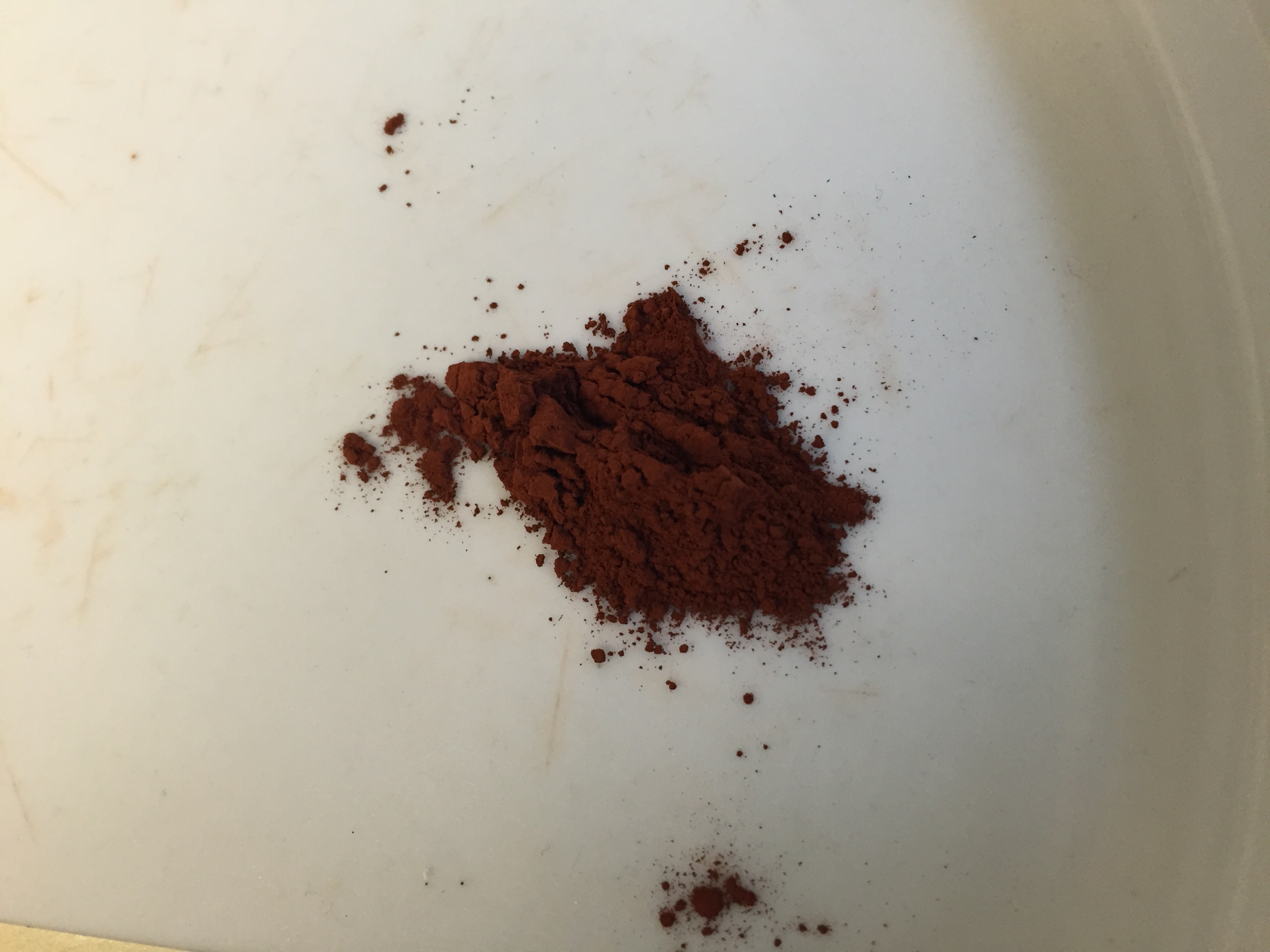
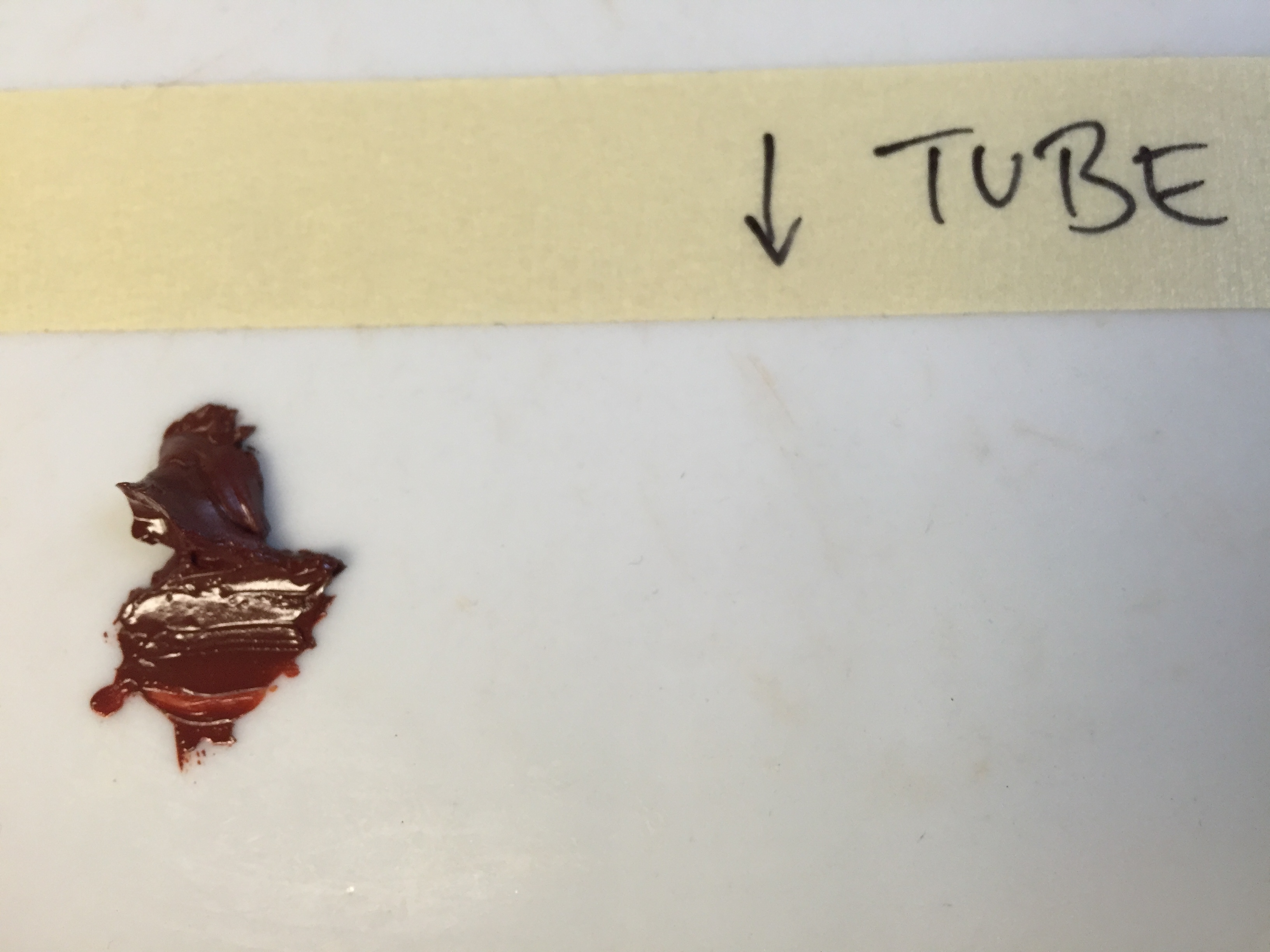
--> I start mixing, playing with the consistency, starting out a little too watery and then becoming a little braver, mixing too much powder and readjusting with further oil. After 2-3 mixology experiments, I think I got a nice spreadable consistency -- not as much gel consistency as the tube gel (which I find a bit too gummy like)
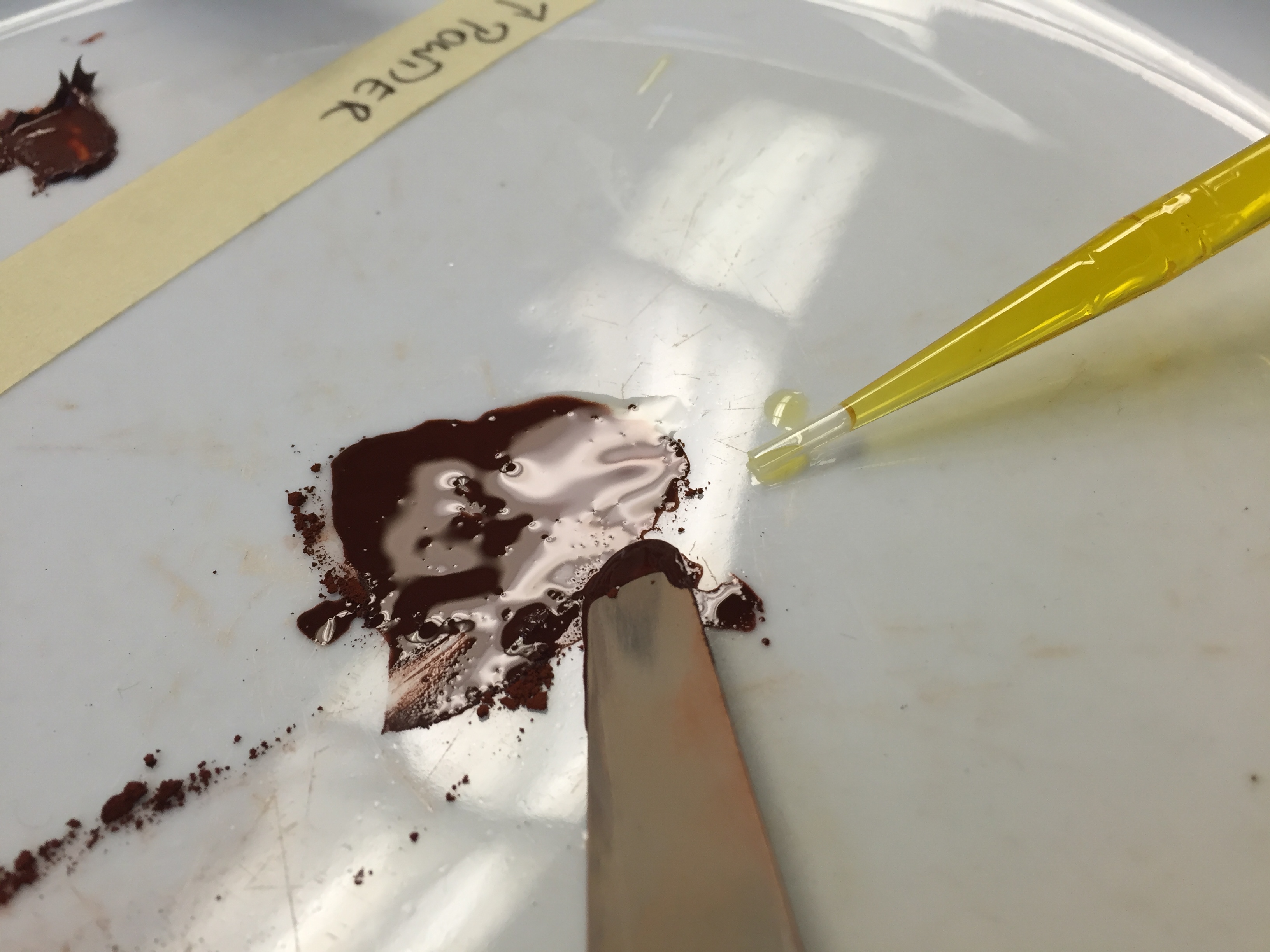
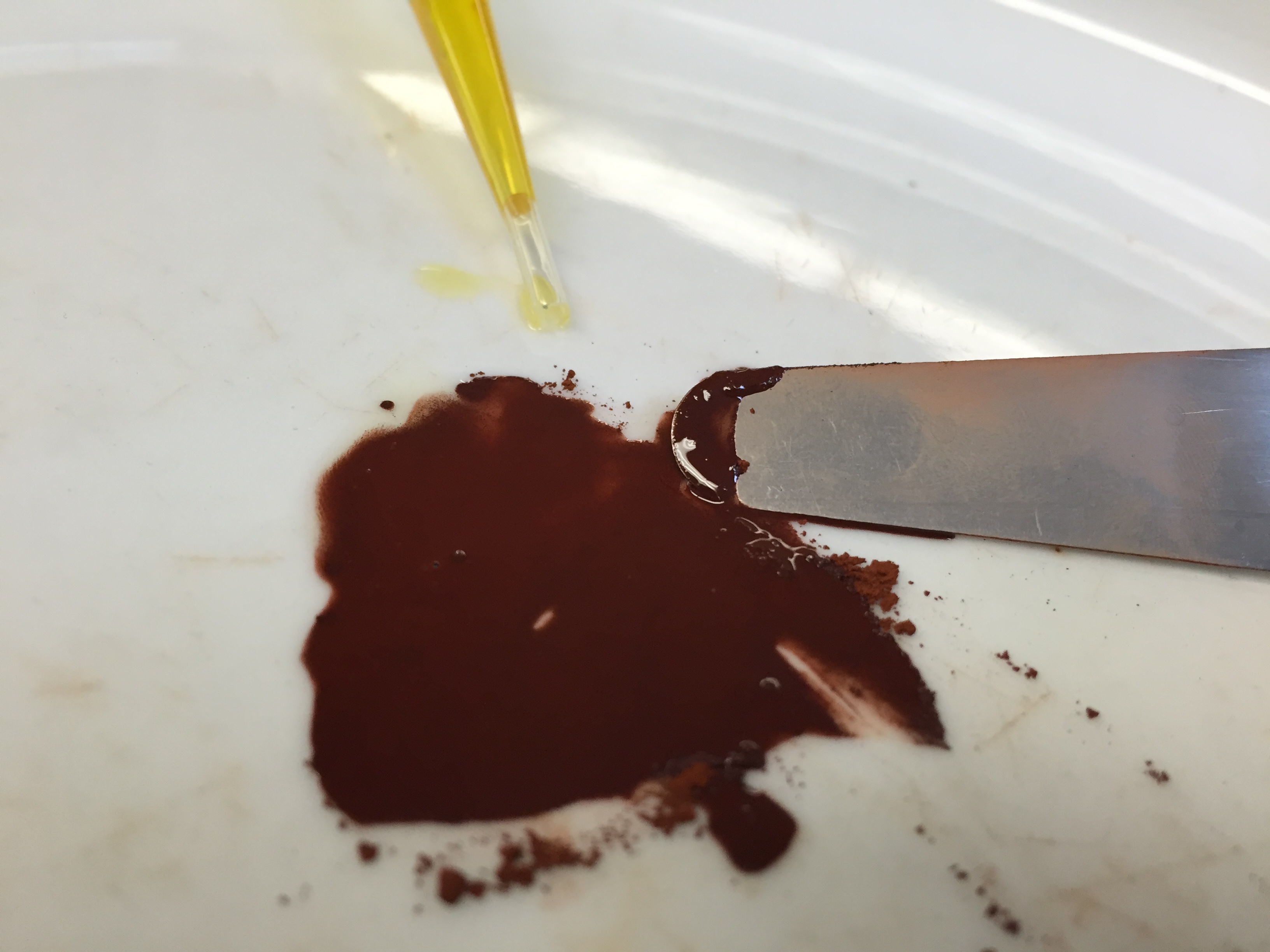
Pre-note: Leave a strip clear (just with rabbit skin glue) as a kind of control
--> I test the tube gel on the top right corner. It gets clear that this really is the easy and quick option: no mixology, just squeeze and paint on canvas. It's smooth and easily applied to the cloth. It nicely covers the fabric, leaving a relatively even and a surface that is not much affected by scraper strokes.
Who wants to go for the easier option anyway? I have a deadline soon, but what the heck.
--> I test the powder gel just below, not as easily applied, looks more watery, which worries me as I need to have an even surface and am not supposed to see much of the fabric lining
--> Back to mixology (duh!), still trying to get it less gel-hard like the tube but also less watery
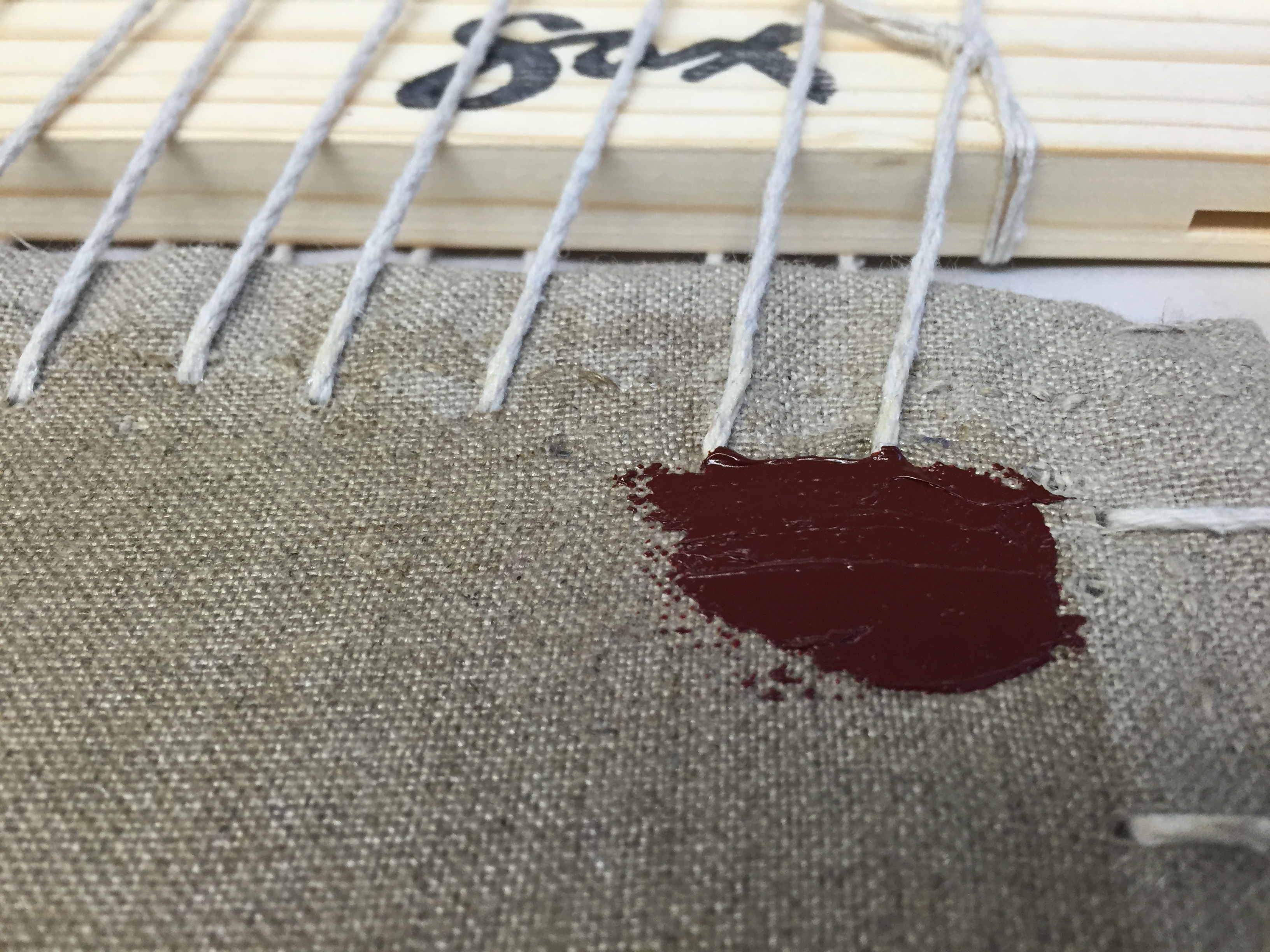
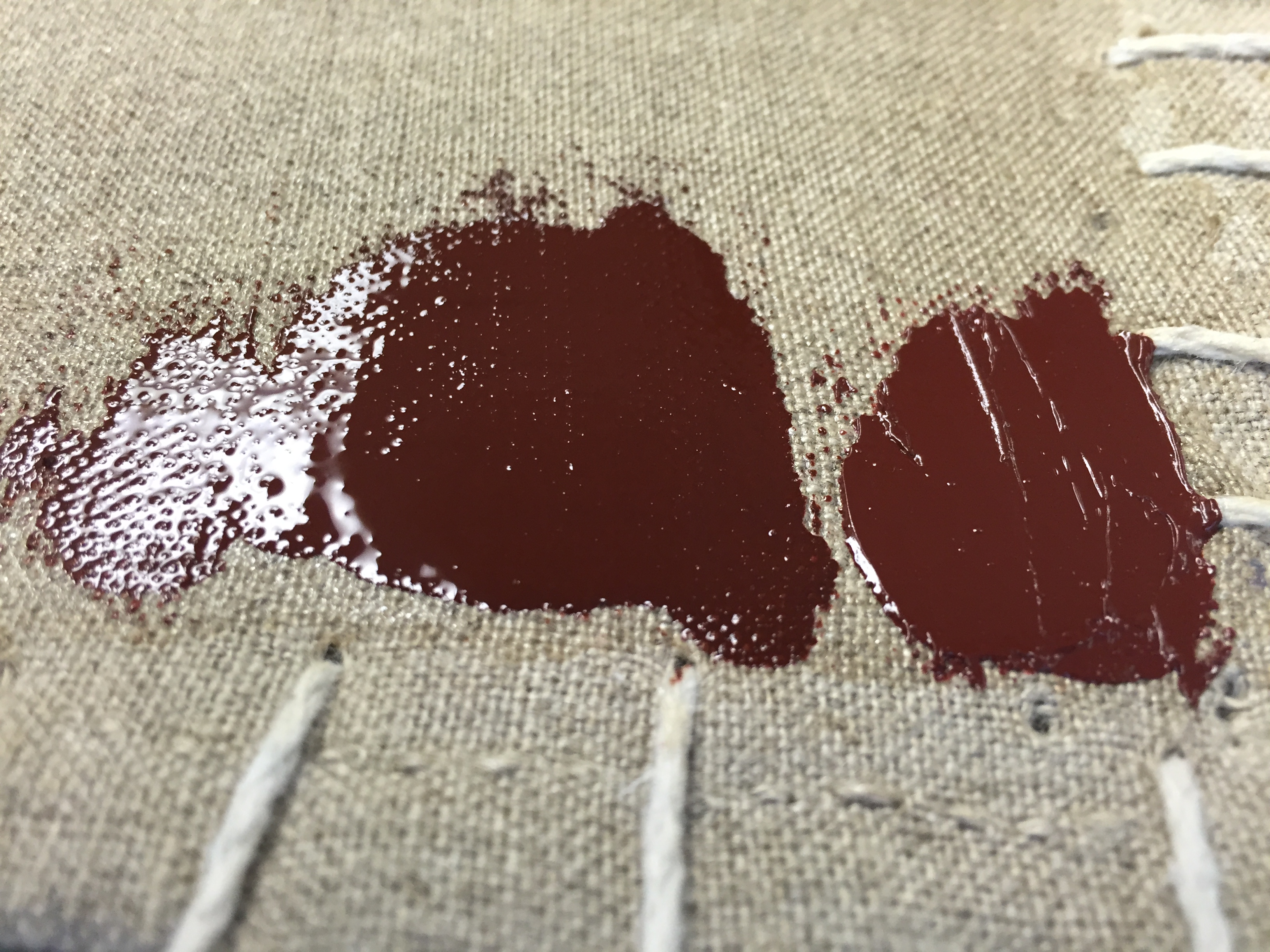
--> I finally got my preferred consistency: I use the scraper to apply it to the canvas. At the beginning -- Naomi said I can also use a brush or my fingers. At this point I completely forgot about that as it is too much fun trying to play with the scraper. Essentially, I use two techniques in combination. Broad strokes with greater pressure (full flat surface) and smaller strokes (more pressure at front tip of the scraper) to even out the missing spots
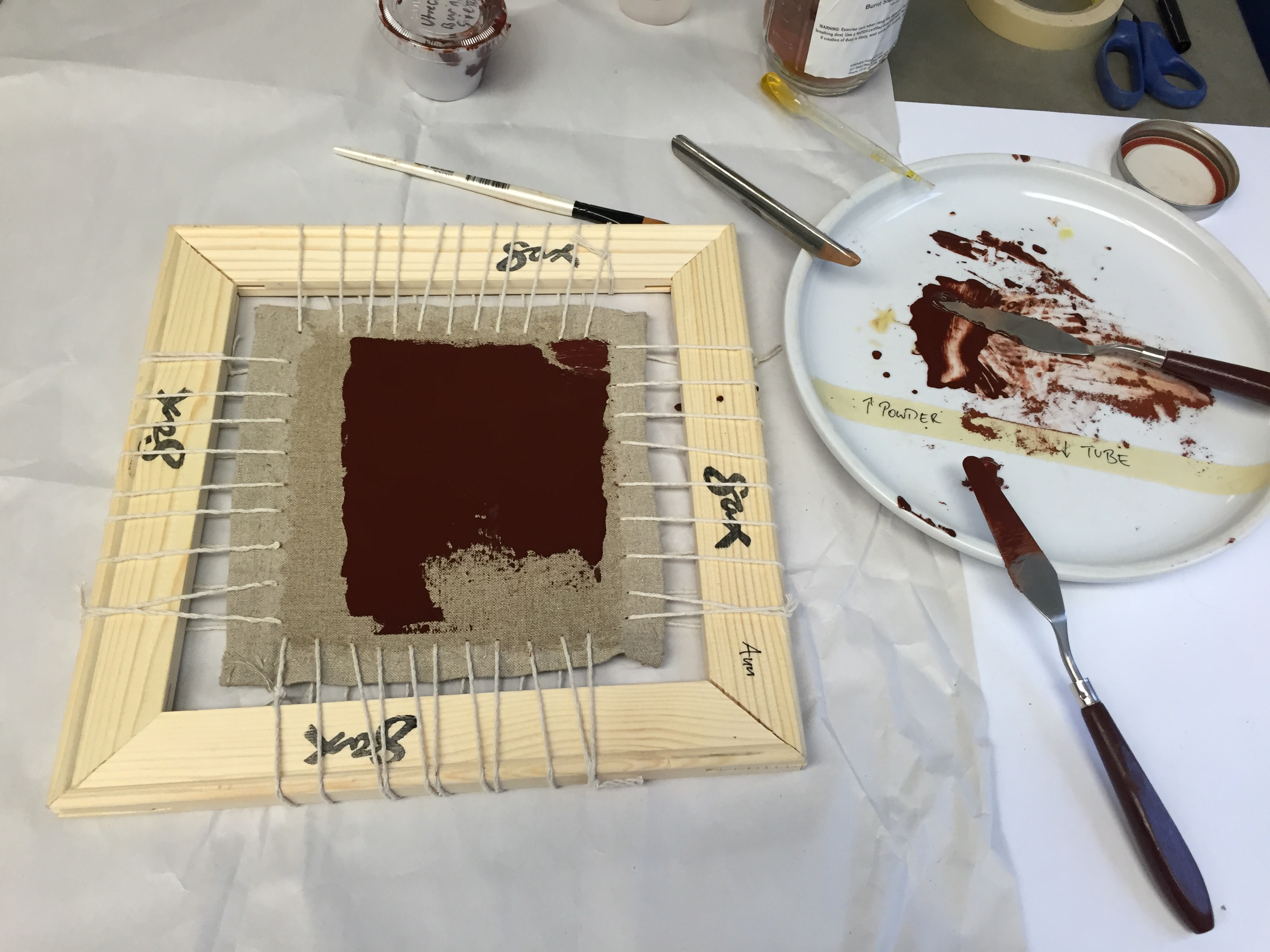
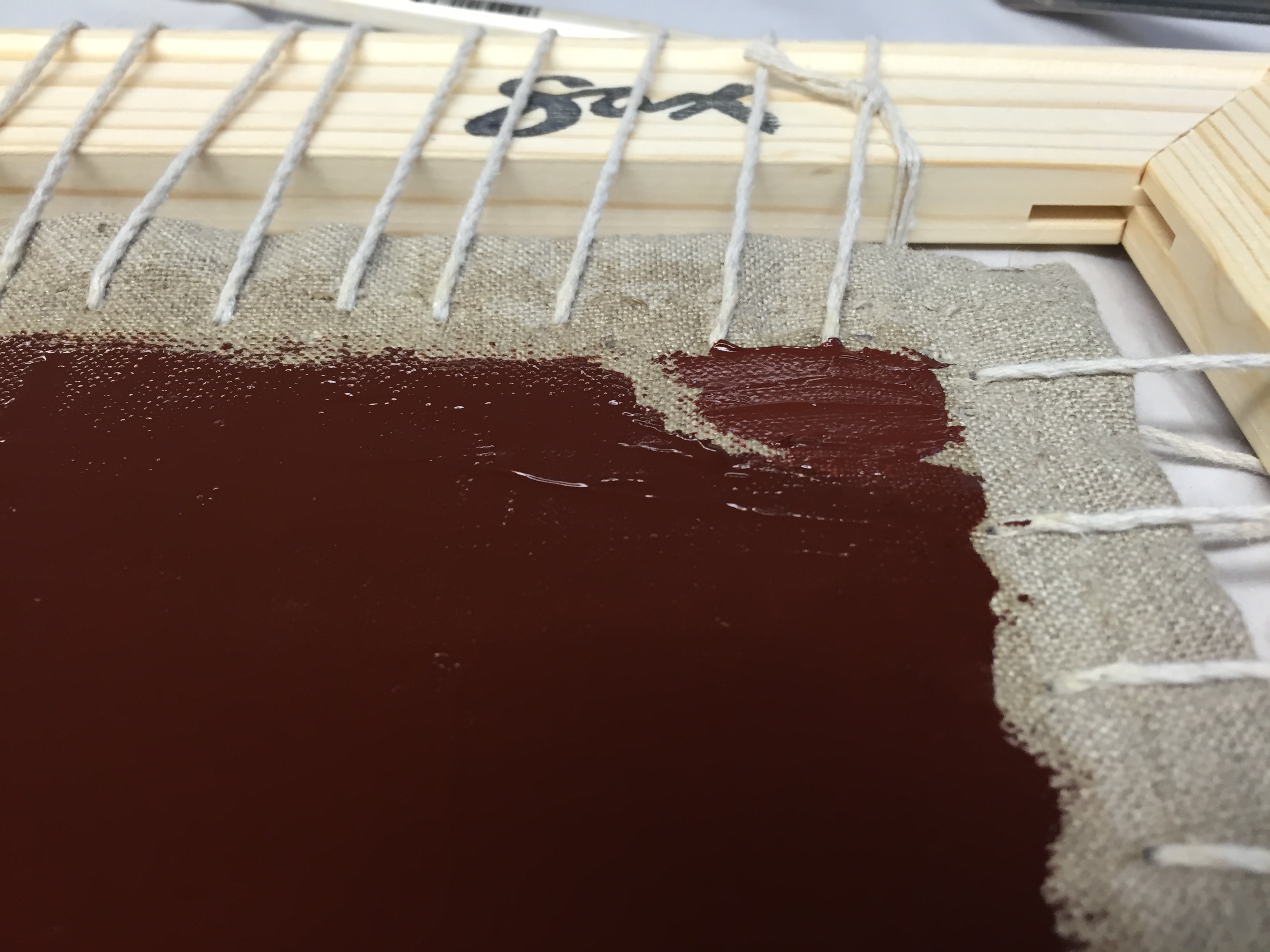
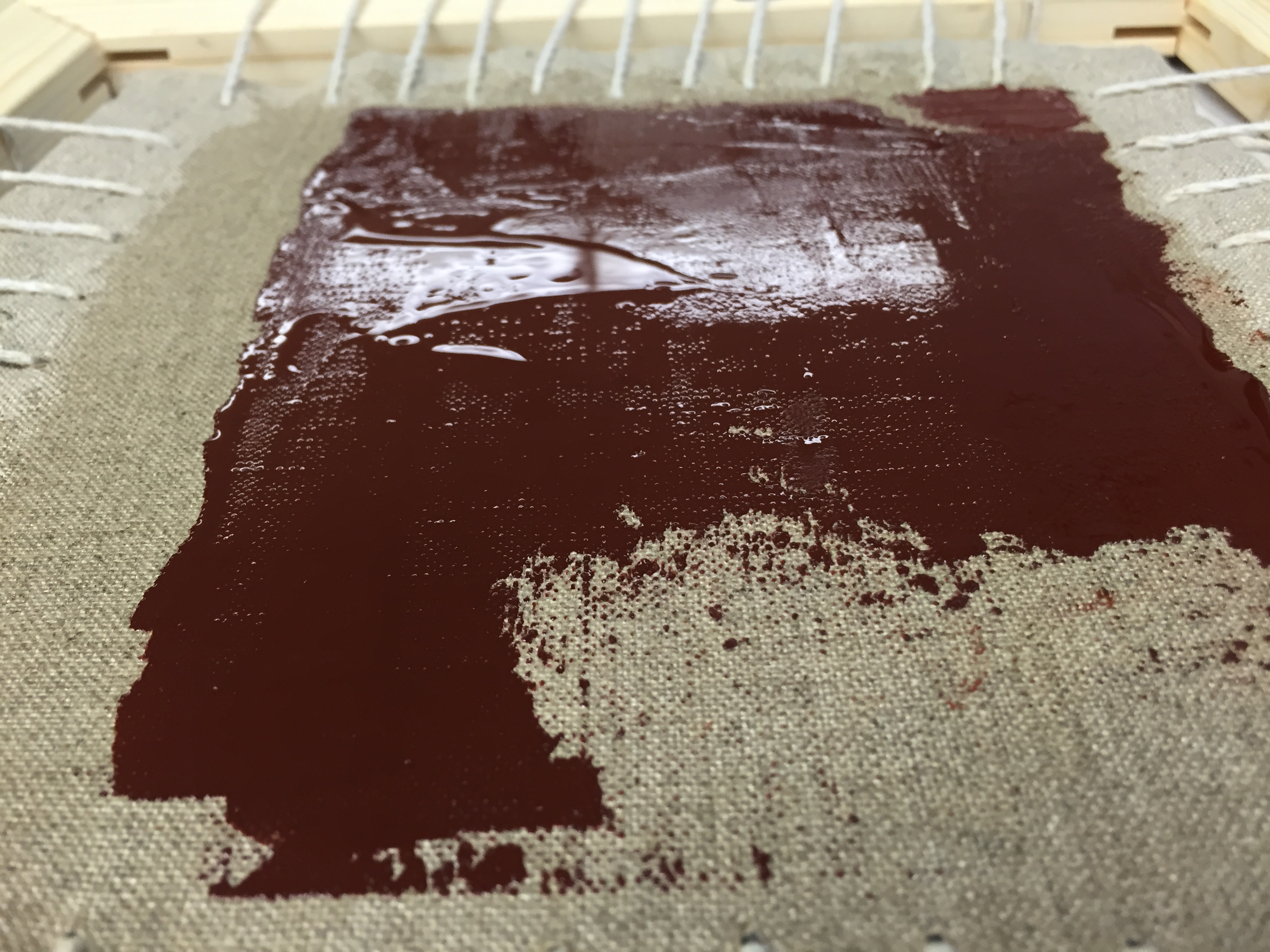
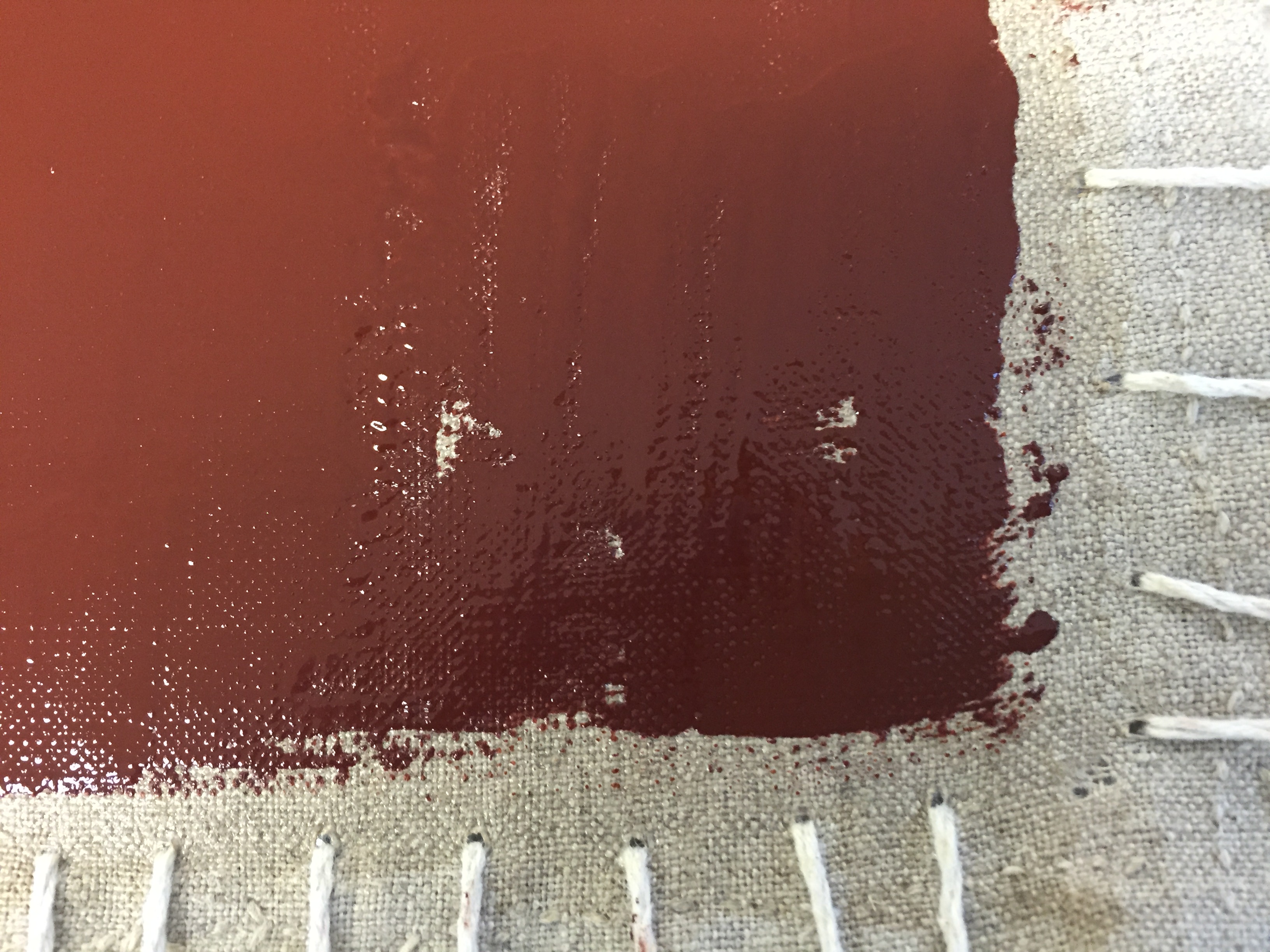
--> This all goes pretty fast. I am surprised how shiny my Sienna powder gel is. It looked rather dull on the test canvas
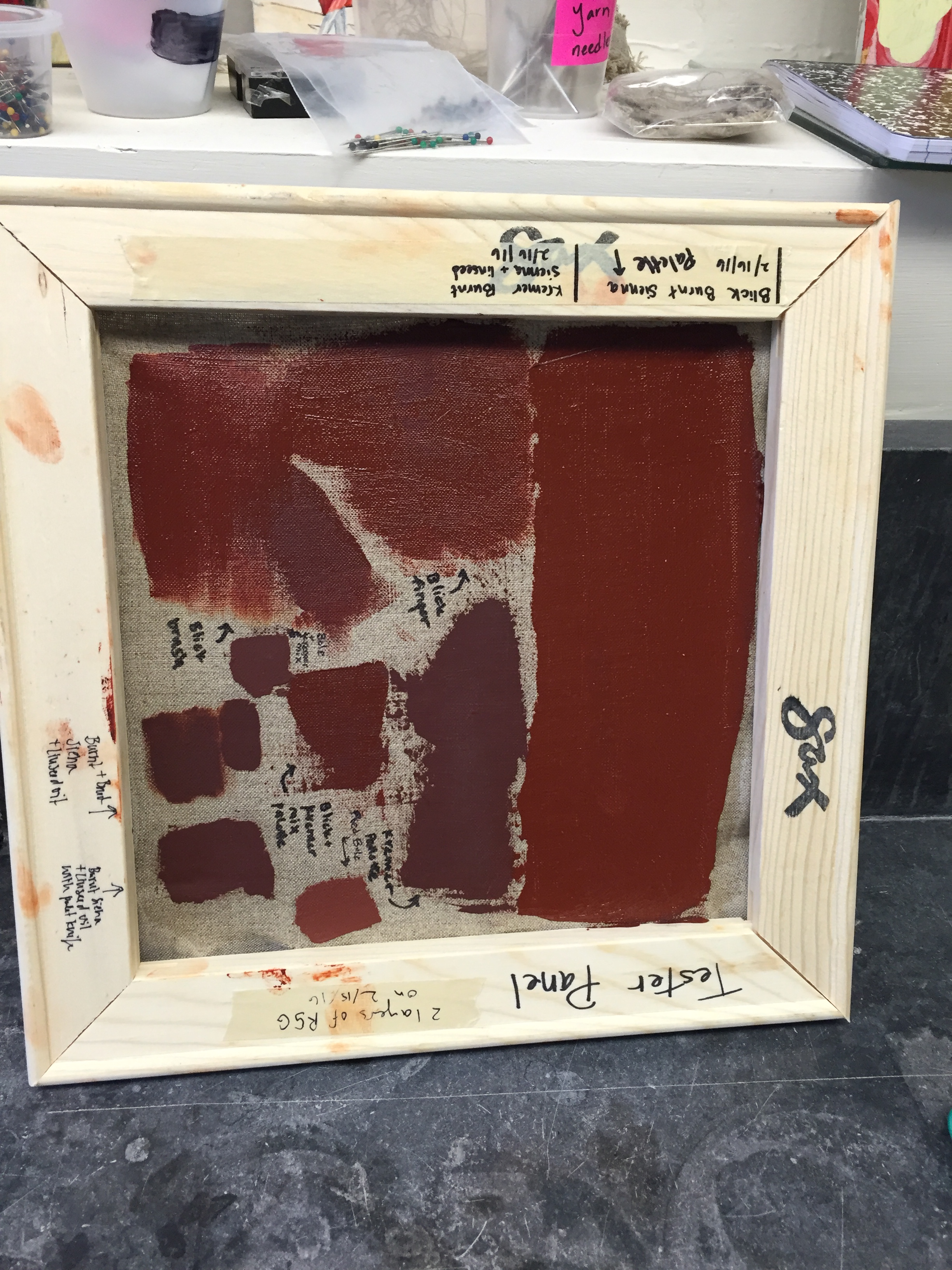 (large red surface on the far right is tube, bigger + darker surface left bottom is powder)
(large red surface on the far right is tube, bigger + darker surface left bottom is powder)--> I work with several scraper strokes to eliminate the last little missing spots.
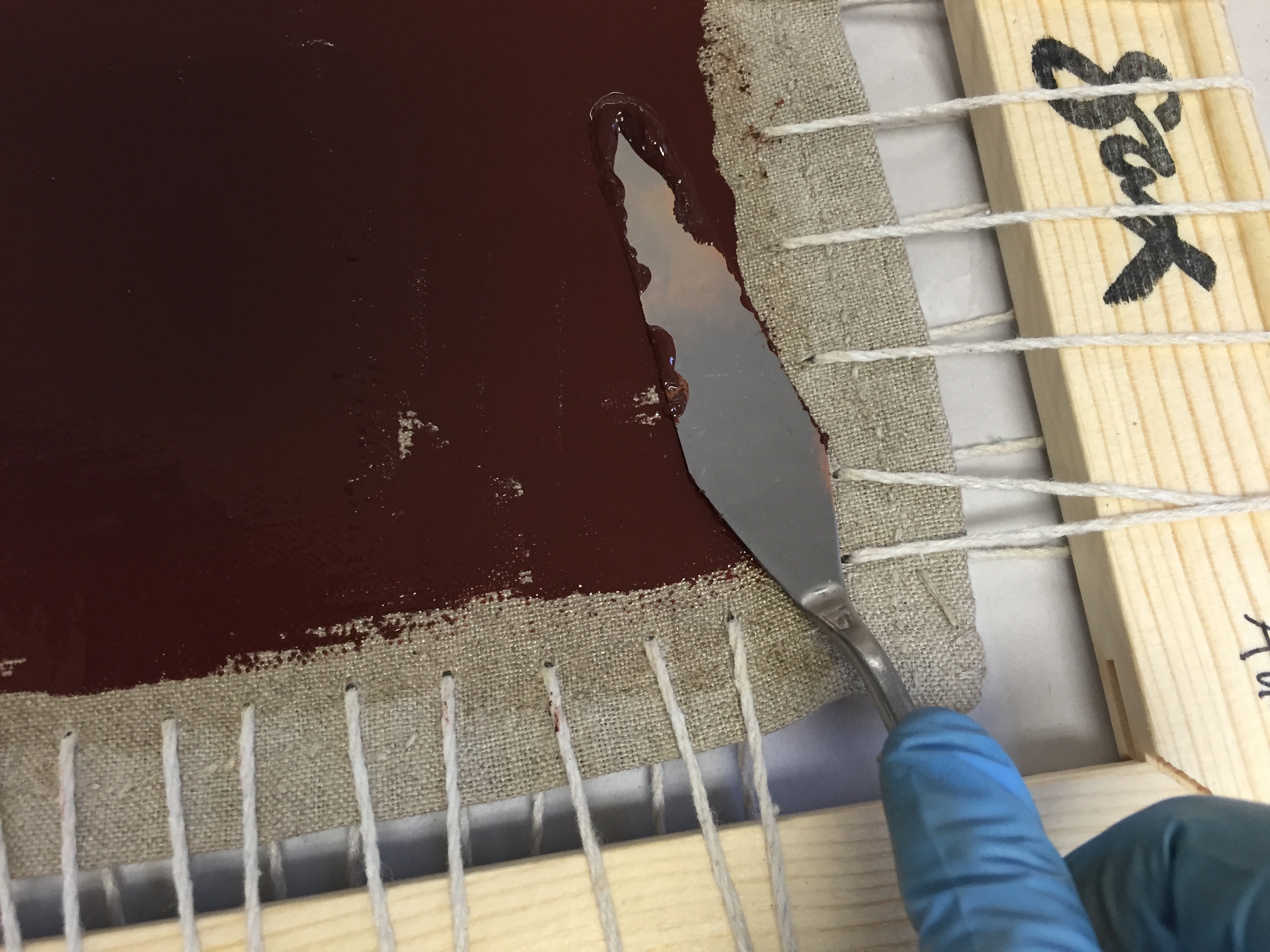
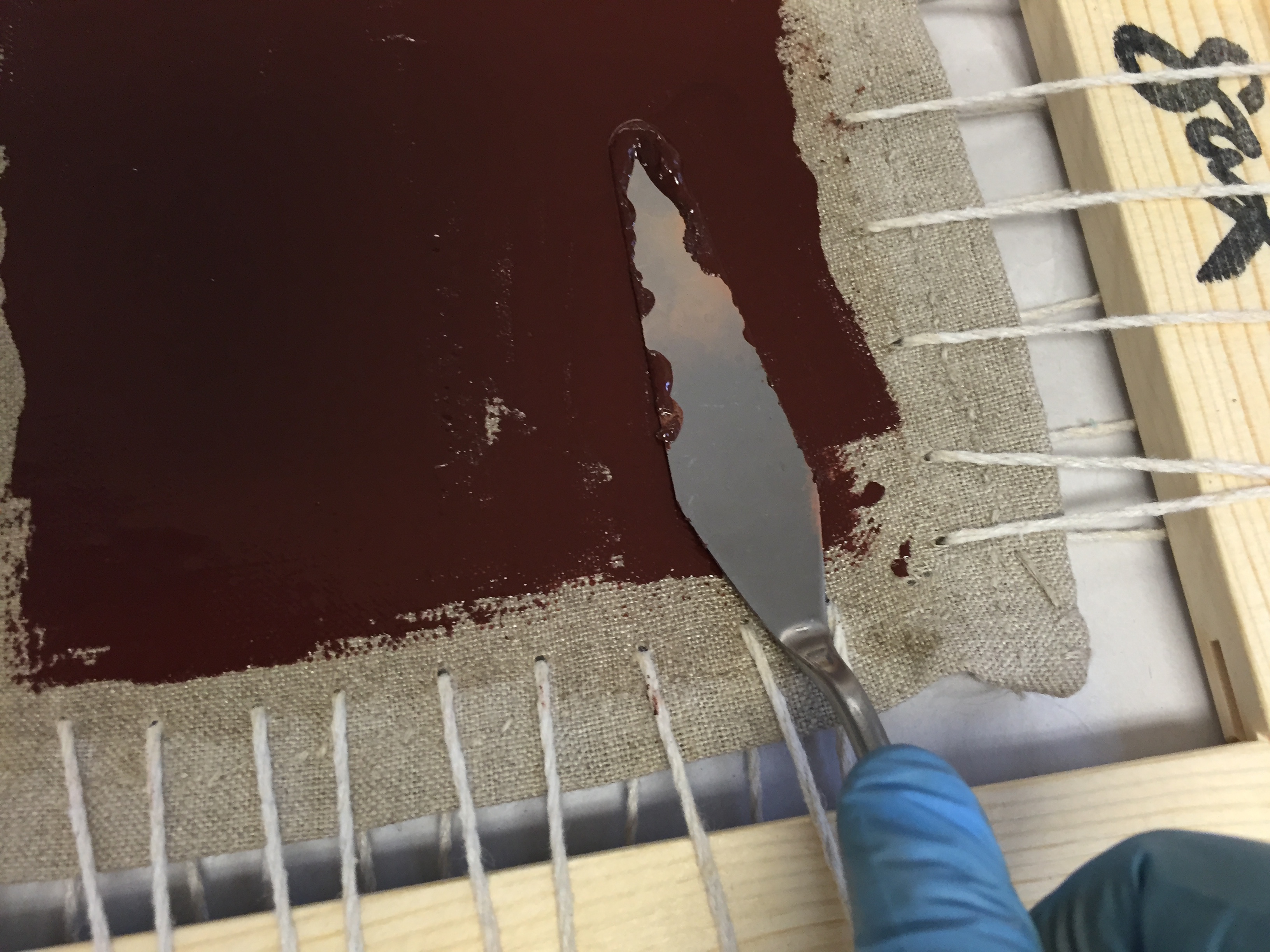
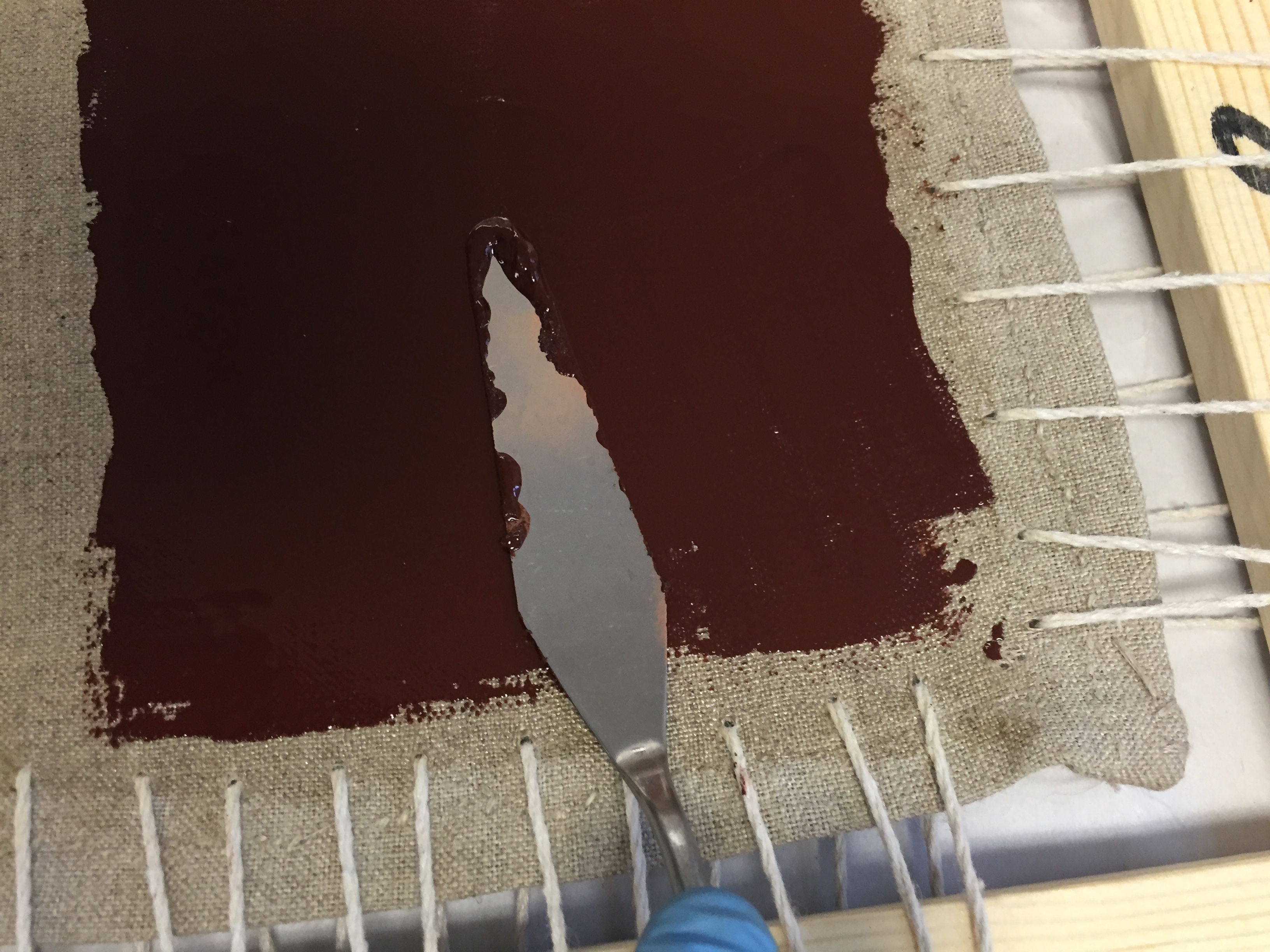
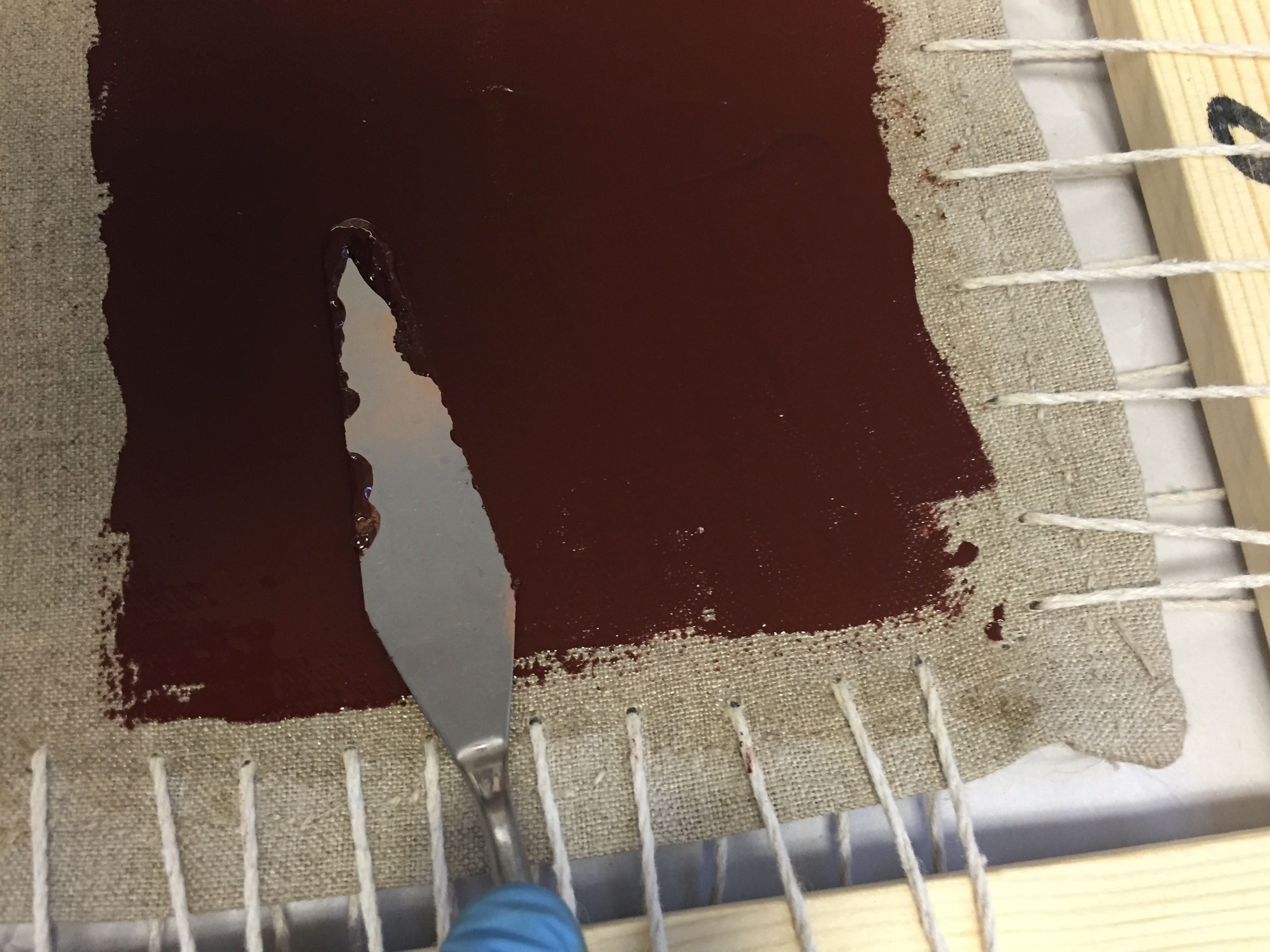
DONE!
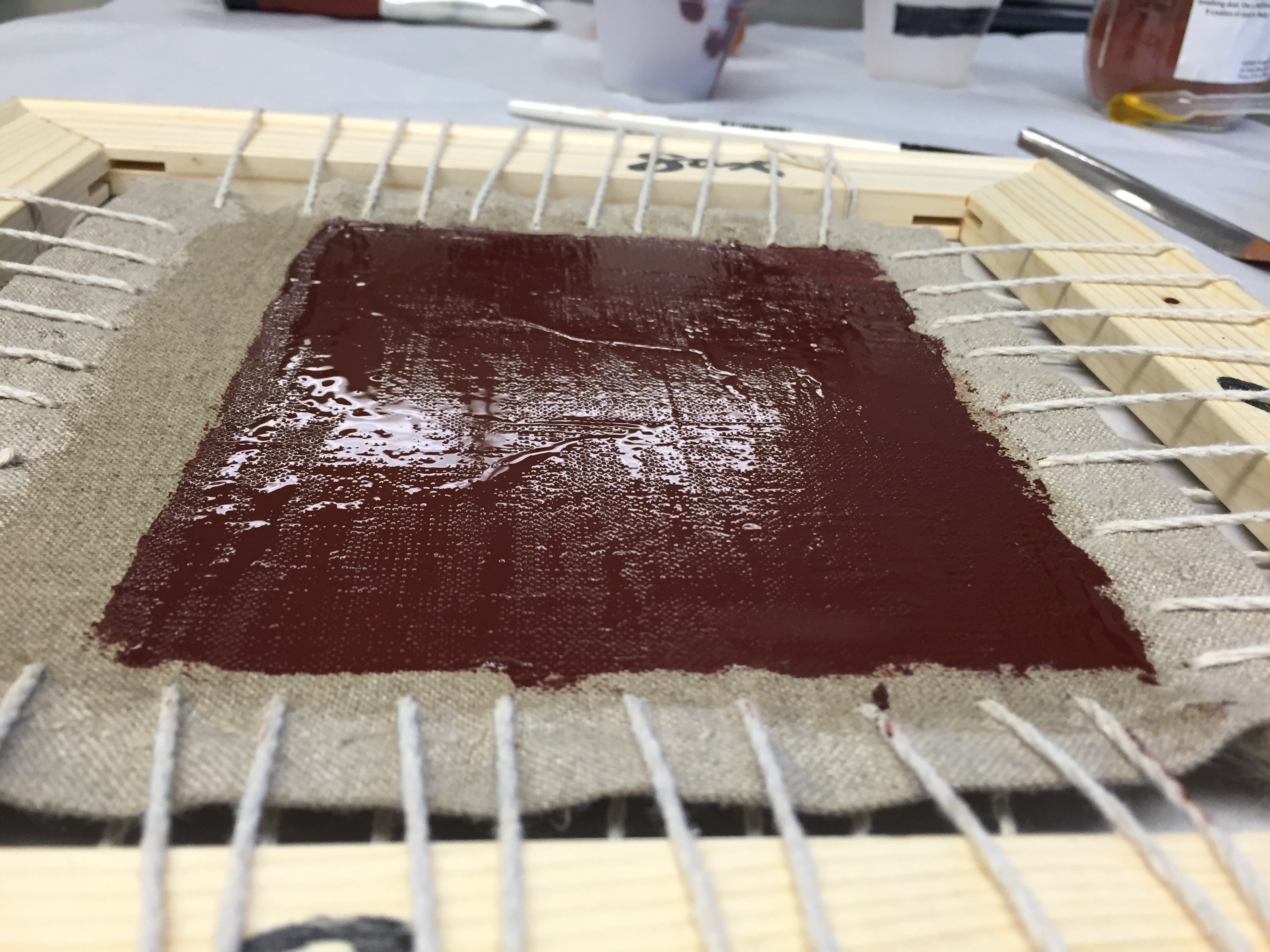
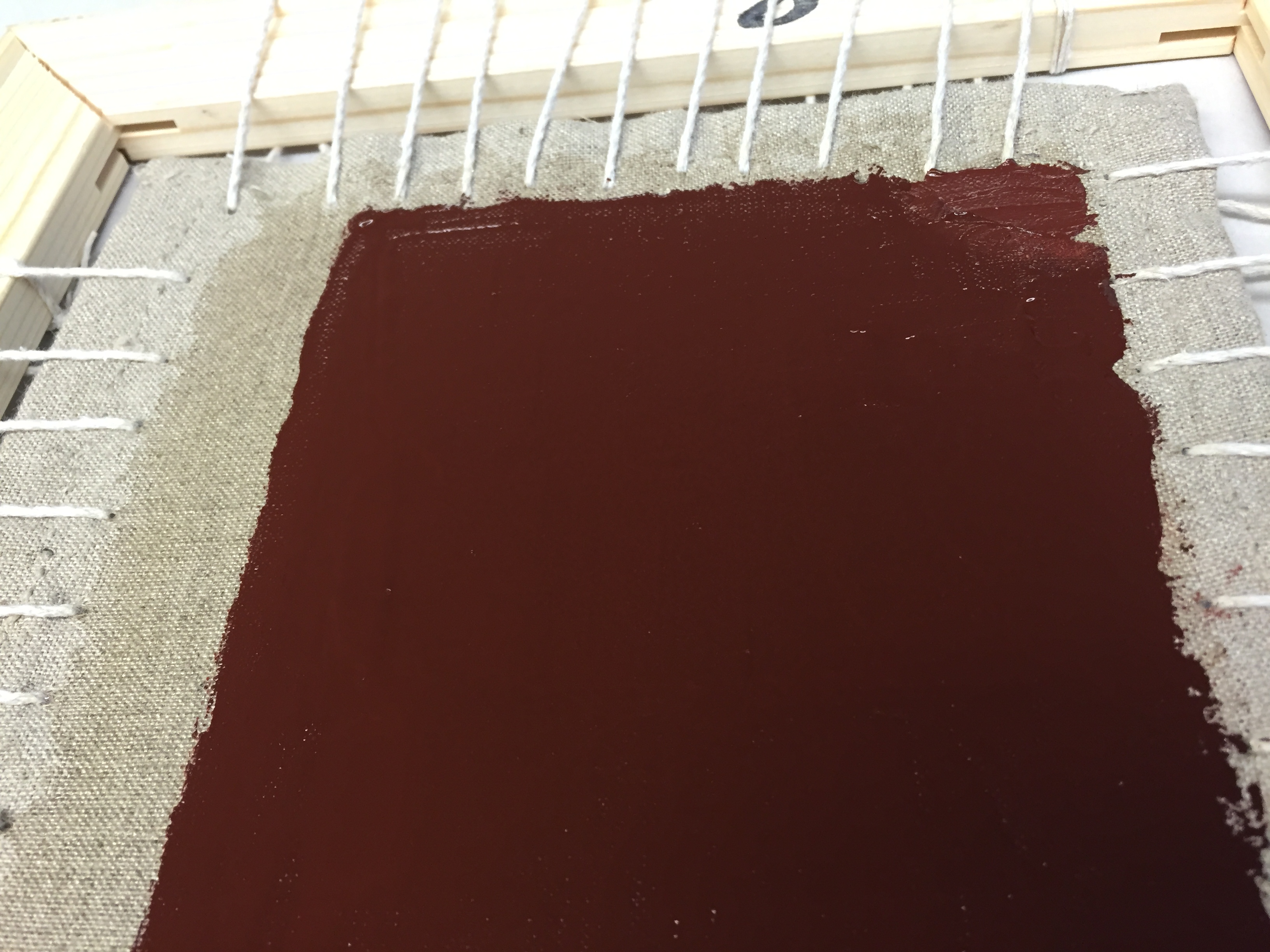
ALMOST! Damn you OCD -- going one last time over the edges and smoothening the surface out...
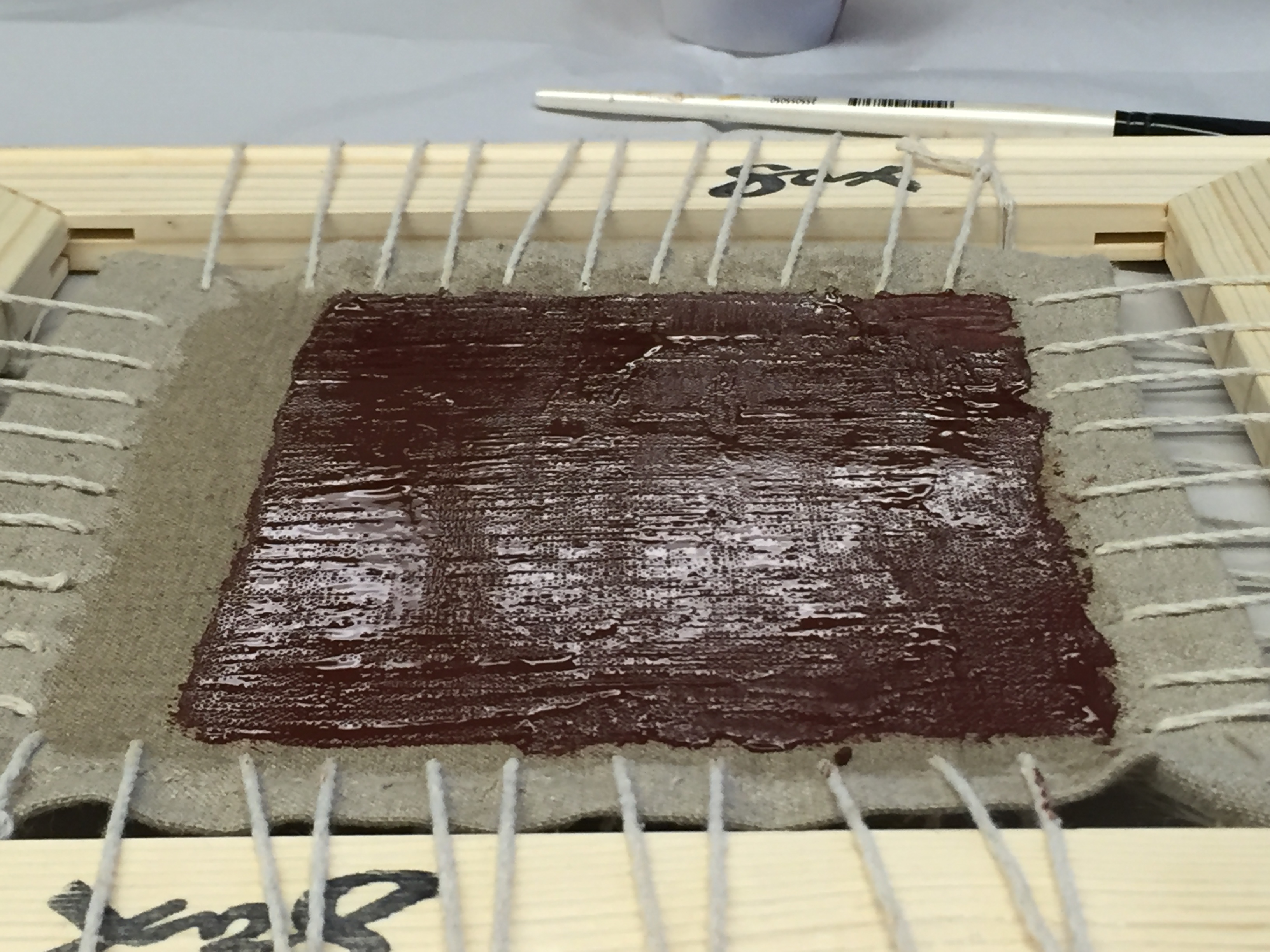
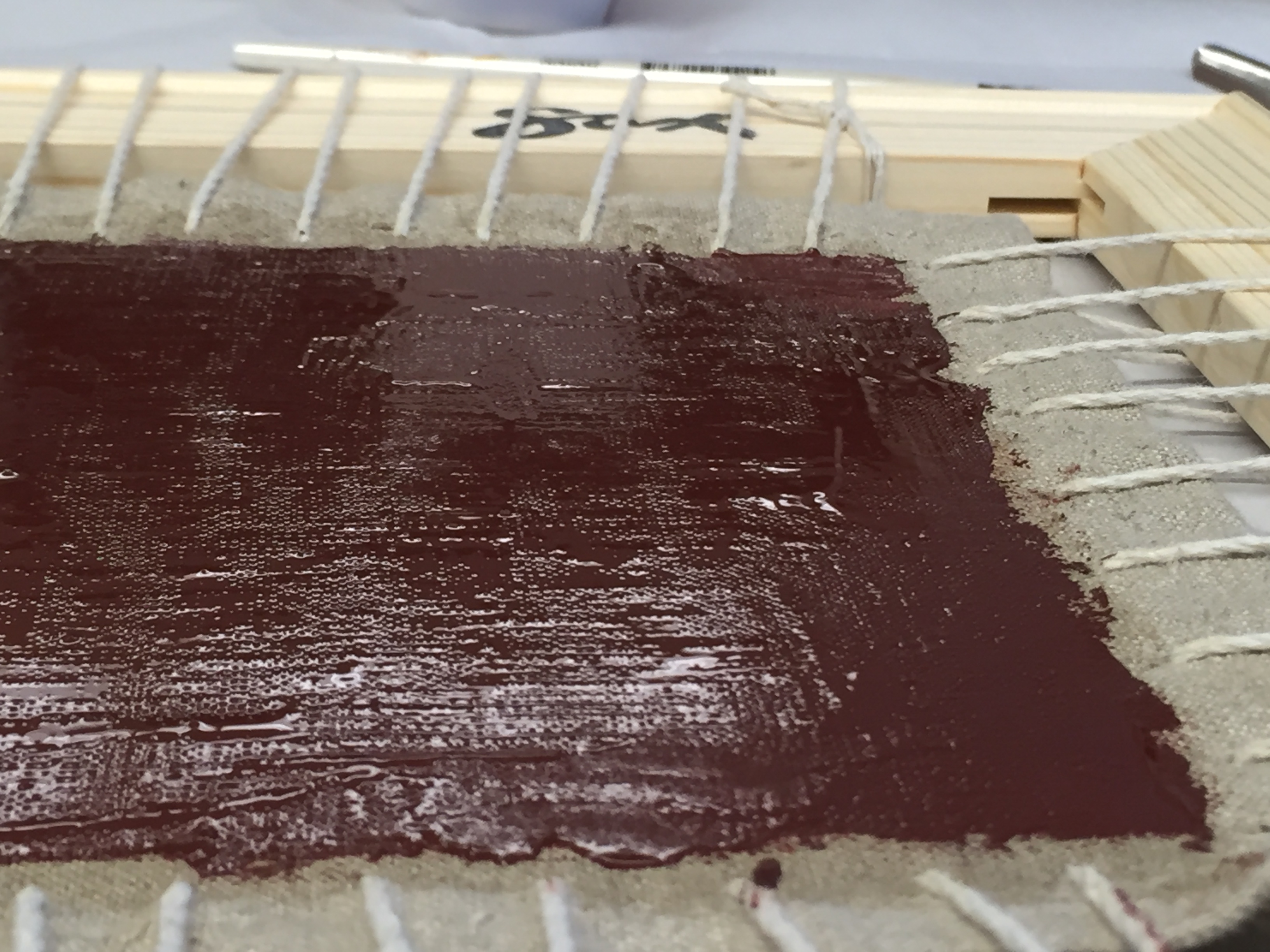
Name: (Also the name of your working partner)
Date and Time:
2016.[Month].[Day], [hh]:[mm][am/pm]
Location:Subject:
Name: (Also the name of your working partner)
Date and Time:
2016.[Month].[Day], [hh]:[mm][am/pm]
Location:Subject:
ASPECTS TO KEEP IN MIND WHEN MAKING FIELD NOTES
- note time
- note (changing) conditions in the room
- note temperature of ingredients to be processed (e.g. cold from fridge, room temperature etc.)
- document materials, equipment, and processes in writing and with photographs
- notes on ingredients and equipment (where did you get them? issues of authenticity)
- note precisely the scales and temperatures you used (please indicate how you interpreted imprecise recipe instruction)
- see also our informal template for recipe reconstructions